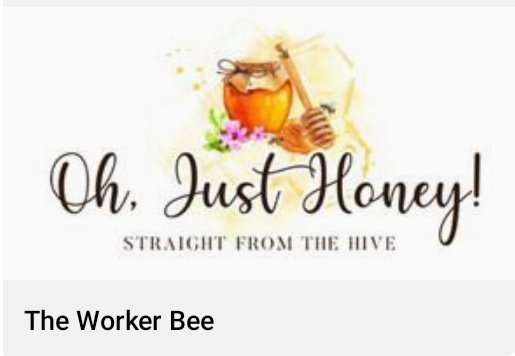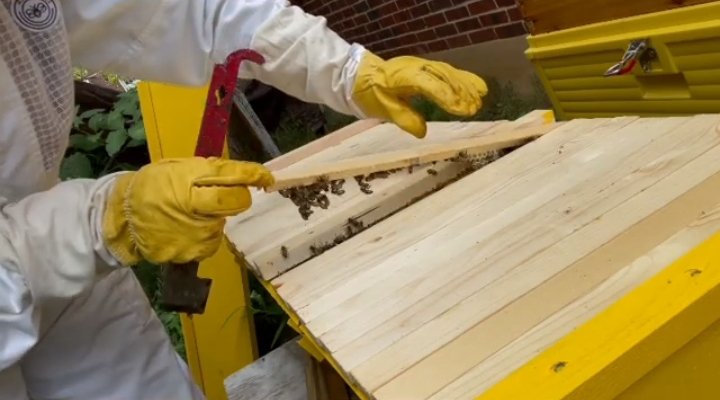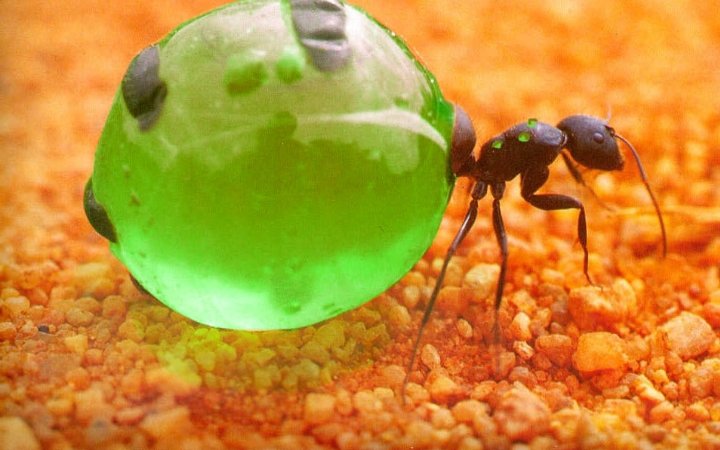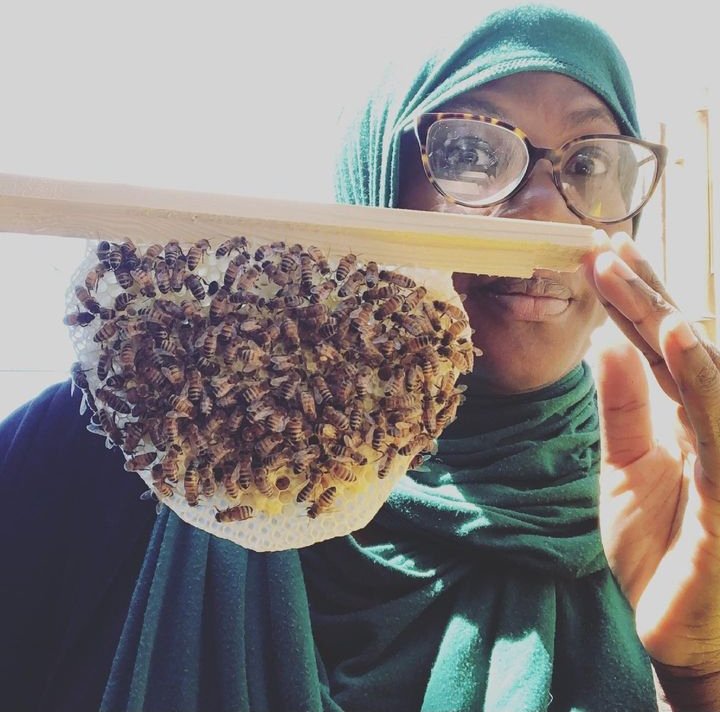
Allah directly details, how They empowered the Bee to dwell within Various-Environments upon Earth. And, explains that the Purpose/Contribution of the Bee via the Natural-World is crucial/vital to the Survival of Countless-Plantlife on Earth.
(Noble-Qur’ān: Chpt.16, V.68&69)
One Particular-Entity, spearheaded by Seanece Cunningham, has proven to be an Invaluable-Resource as per their Profession as a Beekeeper & Honey-Harvester. This is coupled with the Fact that they’ve their own Business: selling Honey & Honey-Based Products. I’ve decided to interview them, that they give the Public a Glimpse into the World of Bee-Conservation, via Beekeeping, which most of us would never normally actually appreciate or even take notice of.

GB: What’s your Business about?
SC: Oh, Just Honey, an inner-city apiary located in Baltimore City, MD, offers raw honey & various products made with materials found within the beehive and other wholesome natural ingredients.

GB: What’s the Significance of Beekeeping?
SC: Although the honeybees’ ability far exceeds ours in managing their care. Beekeepers enter into a partnership with the tiny insect to benefit themselves and others by creating a system that extracts the bees’ created material; like its honey, pollen, propolis, and royal jelly.

GB: Are there Different-Types/Kinds of Honey and/or which Types/Kinds of Honey are best?
SC: Different types of honey dawn their name of the source of their nectar; a few examples are Clover, Manuka, Acacia, Buckwheat, and Orange Blossom. All honey has beneficial properties; however, some are said to be more potent than others like Manuka honey found only in New Zealand and collected from the protected Manuka tree. It contains over 2,300 natural compounds and is known as a powerful medicinal.

GB: Are Bees the Only Insects that produce Honey?
SC: Surprisingly no, bees aren’t the only insects that produce honey. Known as the honey ants or honey pots. They fill their abdomen with nectar and sap leaks on plant stems producing a delicious syrup called honeydew. Species like the Mexican honey wasps also, store excess nectar in their nests. Although these other creatures are in no way near as proficient and capable in production as the glorious honeybee. Only the honeybee yields enough honey for human consumption. By foraging nectar from various plants, flowers, etc. Honeybees will collect/store nectar and then place honey into cells made of wax secreting from glands on the undersides of their abdomen. Workers will then use their wings to fan, causing evaporation in the water levels of the nectar lower between 16%- 18% resulting in the thick sweet delicious substance of honey.

GB: What Environmental-Factors determine Beehive-Survival and/or Honey-Production?
SC: Working with honeybees for four years and observing several factors both internal and external having an impact on hives. The worker visit over 2000 flowers each day. Sadly, many crops’ are treated with deadly pesticides thus killing this beneficial pollinator. Also, changes in normal patterns of weather greatly affect the bee colonies. Longer harsher winters can kill entire hives and drought causes shortages in vegetation which they use to make food. Unfortunately, beekeepers are the top contributors to the creatures’ demise as well as pests and predators.
GB: Are there Other-Things (other than Honey) that Bees produce for Dietary-Consumption?
SC: The honeybee is the only insect that produces 3-Foods which humans consume: a. Honey, b. Bee Pollen, Royal Jelly.
GB: What’s the Purpose/Usage of Bee-Pollen, Royal-Jelly?
SC: According to the website Healthyy, bee pollen is 20% protein, 70% carbohydrate, 10% fiber, and fatty acids, vitamins, and minerals. Pollen is known to possess anti-inflammatory and antioxidant properties; treat cancer, infections, anemia, oral cavities, and atherosclerosis, and promote immunity and liver health. Its beneficial effects are due to its high nutrient content, enzymes, and compounds like tocopherols (vitamin E), flavonoids, and linolen.(Healthyy.net) Royal jelly, a white gelatinous substance is made to feed the eggs for the first three days and queens exclusively during development. It is said to aid in the anti-aging in and outside of the body. Many luxury brands use traces of royal jelly in facial creams. Royal jelly is said to boost fertility in men, heal wounds, treat osteoporosis, treat symptoms of menopause, and have various other health benefits.

GB: What’re the Risks/Dangers of Beekeeping?
SC: Beekeeping is rewarding and is needed for us to enjoy all the bee’s hard work. However, a lack of knowledge of any trade is harmful and poses risks. As More and more people are discovering beekeeping as a new hobby, most don’t understand its challenges. From personal experience, honeybee colonies expand rapidly in Spring and Summer, quickly outgrowing hives and small spaces. If not managed appropriately swarming occurs in which thousands of bees leave to find a new home. This natural phenomenon causes panic putting scared people at risk of harm. There’s call for laborist work like lifting heavy super boxes to check hives regularly. The extraction of honey, pollen, propolis, and royal jelly can quickly become overwhelming.
“Oh, Just Honey” has a Website/Online-Store for their Honey-Based Products, a Beekeeping-Channel on YouTube, and a Beekeeping-Podcast on Spotify:
http://www.youtube.com/channel/UCBRI4LXqSsZnkAp37vN55ZQ
http://www.open.spotify.com/user/31ndn6jfwouefbnei3cgp5xek4b4
For More-Info. concerning the Islāmic-Significance of Honey:
http://www.garethbryant.wordpress.com/2019/04/29/ruqyah/
Gareth Bryant 1444, C.E./2022, C.E.